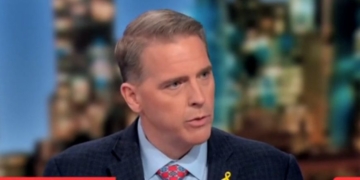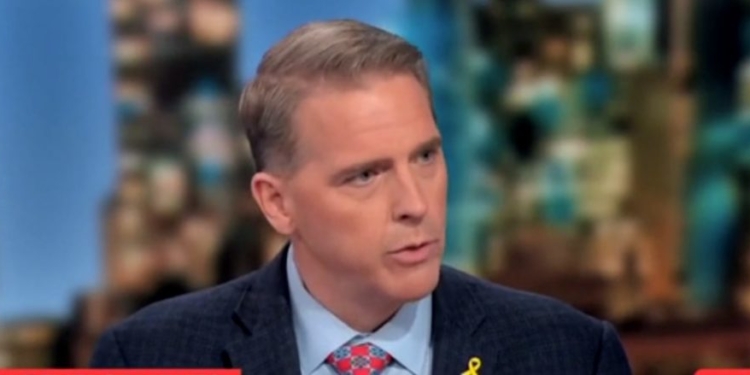Scott Jennings shared his thoughts Thursday on the reaction of Panama after President-elect Donald Trump threatened to take back the Panama Canal.
Trump openly challenged Panama’s management of the canal and suggested the U.S. have control over Canada and Greenland. During an appearance on “Out Front with Erin Burnett,” Jennings dismissed concerns about potentially upsetting Panama following Trump’s remarks.
“Do I care if Panama is angry? Or is Van Halen gonna come and be upset about it? I mean, honestly, I need them to understand, and Donald Trump needs them to understand that we are the dominant superpower in this hemisphere,” Jennings said. “He needs to have a conversation with them about that. And I hope that he does. And yes, they are an ally, but this is a vital thing.”
Jennings said this pushback from Trump is less about instigating diplomatic spats and more about reasserting American dominance.
“I think Donald Trump is trying to send a message to the Chinese, and he’s also trying to send a message to everyone else in the hemisphere that I’m not gonna put up with this encroachment,” Jennings said. “Now, what is true is that China is having encroachment in this hemisphere, in Africa, all over the world. They are trying to act like the world’s leading superpower. They are trying to exert their values and their way of life all over the world.”
Trump called for the Panama Canal’s return to U.S. oversight and criticized Panama for what he described as exorbitant toll fees. “Knowing the extraordinary generosity that has been bestowed to Panama by the U.S. This complete ‘rip-off’ of our Country will immediately stop,” Trump said.
Trump also criticized Jimmy Carter for his decision to relinquish control of the Panama Canal and said Carter made a mistake. In 1977, Carter signed a treaty with Omar Torrijos, who, at the time, was the leader of Panama’s military junta. That treaty initiated the transfer process that was completed in 1999, transferring full authority to the Panama Canal Authority, History.com reported.
Prior to this agreement, the U.S. had secured extensive control over the canal area through the 1903 Hay-Bunau-Varilla Treaty, which allowed for its construction, maintenance, operation and protection. After Colombia rejected an American bid to take over a failed French project, the U.S. supported a Panamanian independence movement, paving the way for the canal’s construction, which became America’s most costly infrastructure project at the time.
(Featured Image Media Credit: Screenshot/CNN)
All content created by the Daily Caller News Foundation, an independent and nonpartisan newswire service, is available without charge to any legitimate news publisher that can provide a large audience. All republished articles must include our logo, our reporter’s byline and their DCNF affiliation. For any questions about our guidelines or partnering with us, please contact [email protected].



























 Continue with Google
Continue with Google